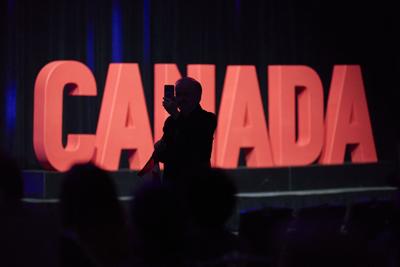In last month’s federal election, Canadians opted for steady leadership over disruption. Mark Carney’s Liberal party secured a minority government, halting what had once seemed a likely Conservative victory.
The outcome was about more than just a shift in political fortunes. It reflected a deeper instinct among voters: a preference for economic resilience, long-term stability, and practical leadership over division and confrontation.
At a time of rising global tensions and a bruising trade dispute with the United States, Canadians made a clear choice. They chose steadiness over ideology, pragmatism over partisanship.
The Liberal gains were not a sweeping endorsement of one party’s vision. They were a sign that Canadians are weary of polarization and looking for leaders who can deliver solutions, not slogans.
Yet beneath this political realignment lies a more persistent challenge: a steady erosion of trust.
Even before the election, the 2025 Edelman Trust Barometer found that six in 10 Canadians were disillusioned with business, government and the wealthy. Over the past decade, Canada has slipped from a high-trust society to one where faith in institutions — business, media, government and NGOs — has steadily declined.
What began as cautious skepticism has hardened into cynicism. Increasingly, Canadians see these institutions not as flawed but necessary, but as obstacles to progress, more focused on self-preservation than the public good.
For those looking for signs of unity, Canada’s election may have offered a hopeful moment, but it also raised expectations beyond its own borders.
Across Europe and beyond, observers have pointed to Canada as proof that democracies can still reject division. That international attention raises the stakes.
It’s not enough to win back trust at the ballot box. The harder work lies in demonstrating that unity, pragmatism and leadership can endure beyond election night.
That challenge extends beyond politics. Across every sector, trust must now be rebuilt. Nowhere is this disillusionment more visible than in the corporate world, where trust in CEOs has fallen sharply.
Canadian CEOs now rank among the least trusted globally. More Canadians than ever believe that business leaders are not just out of touch but are actively misleading the public.
Some of this skepticism stems from the missteps of high-profile CEOs, whose actions are magnified in the public eye. But the frustration runs deeper.
The social contract in Canada — the promise of upward mobility, affordable living and accessible health care — feels increasingly broken.
Home ownership is slipping out of reach, grocery bills are soaring and public services are straining under demand. Every day, Canadians confront hardships that until recently felt unimaginable.
At the same time, business leaders are under growing pressure. They must balance public expectations with shareholder demands, navigate ideological divides within their own ranks and contend with mounting regulatory hurdles.
Many feel paralyzed, fearful that any misstep will be amplified instantly. In this environment, leadership is fragile, and trust even more so.
That fragility brings real risk. When leaders focus only on surviving the next headline rather than earning long-term confidence, trust collapses.
It is easy to forget that trust is built slowly and lost quickly. In an increasingly polarized world, the ability to foster trust across divides is not just valuable — it is essential to stability and progress.
The Edelman Trust Barometer has consistently shown that Canadians expect businesses to step up where other institutions falter — particularly on economic opportunity, social progress and climate action.
This year’s results reinforce that Canadians are focused on the fundamentals: they want companies to provide good-paying jobs, foster workplace civility and invest in workforce reskilling.
In a fragile economy and a rapidly evolving global landscape, these are not just hopes. They are demands.
The solution is clear. Businesses must take meaningful action to strengthen the communities where they operate.
Companies that lead with ethical decision-making and a commitment to social progress will earn credibility with customers, strengthen employee loyalty and position themselves for long-term success.
Ethical leadership and financial performance are not competing forces — they go hand in hand.
Leadership has always demanded both ethics and competence. A well-intentioned executive who cannot deliver results will fail just as surely as a capable leader who lacks credibility.
Trust rests on two pillars: transparency and accountability on one side, and the ability to deliver, adapt and endure on the other. Without both, leadership crumbles.
Canada’s election showed that measured leadership still matters. But it also showed that the world is paying attention.
In the months ahead, Canada has a chance to model a different kind of politics one that resists division, builds trust and focuses on the long game.
Restoring trust will take more than a campaign. It will take action, discipline and a commitment to the long game. Those who understand that will shape the future. Those who do not will be left behind. Canadians are watching. They are looking not just for promises, but for proof.



























To join the conversation set a first and last name in your user profile.
Sign in or register for free to join the Conversation